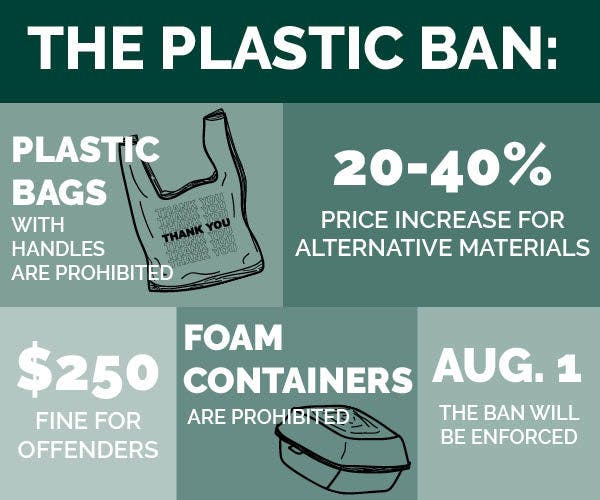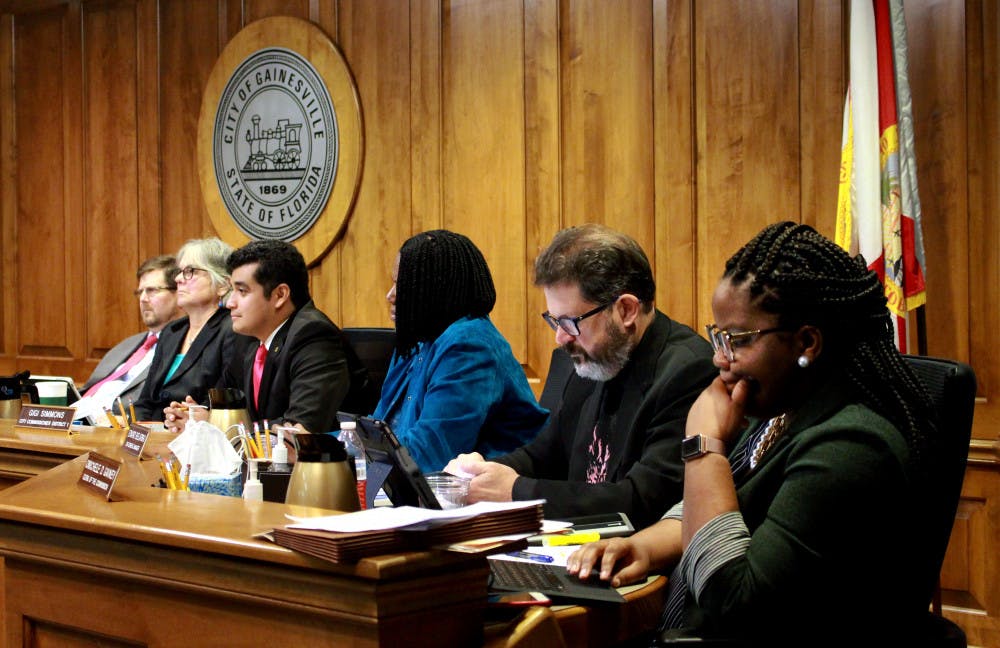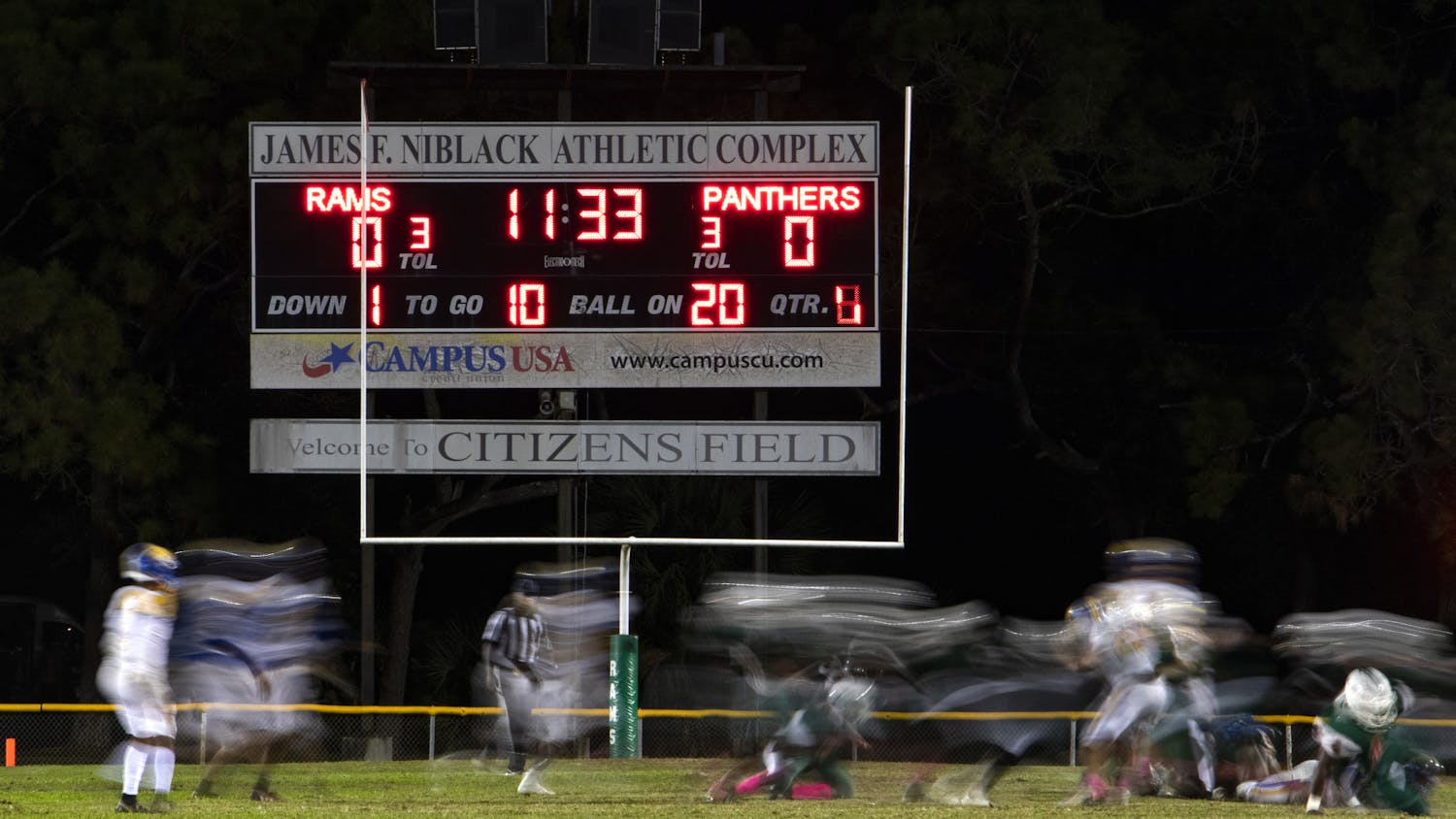Plastic bags were the first to go from Loosey’s.
The foam containers used to hold half-eaten leftovers were next. And soon, every other business in Gainesville will be doing the same.
The Gainesville City Commission voted unanimously to pass an ordinance banning single-use plastic bags and foam containers in Gainesville Thursday evening.
By Aug. 1, businesses will no longer be able to give customers foam products like cups, plates or to-go boxes or any plastic bag with handles, like the ones at Walmart and Publix.
The idea for the ban came about a year and a half ago when the commission adopted a zero-waste initiative. City Commissioner Adrian Hayes-Santos, who advocated for the ordinance, said the decision is one of the first steps for Gainesville to be waste-free by 2040.
Gainesville will join communities like Coral Gables, Florida, which was the first city in the state to implement this ban in 2016. Coral Gables received pushback when the Florida Retail Federation filed a lawsuit against the city, arguing that the ordinance was unconstitutional.
Hayes-Santos said he’s not worried about a lawsuit.
“If retail associations want to sue the city to try to pollute our community more, I’d be happy to take on that fight,” he said.
If businesses don’t follow suit, each citation will cost $250.
Enforcement will be mostly complaint-driven, Hayes-Santos said. When someone complains that a business isn’t following the ordinance, code enforcement will issue the fine.
Loosey’s won’t worry about the fine.
The transition to sustainable products in 2017 wasn’t exactly easy for Loosey’s, a Gainesville bar and restaurant that has two locations, because they cost about three times more than traditional products, said Joy Hughes, Loosey’s co-owner.
Foam containers are the industry standard, making it the cheapest option, said Robert Cason, a district sales representative at Cheney Brothers Inc., a Florida food supplier. Foam is cheap and efficient. It doesn’t leak, and is well insulated, unlike some paper alternatives.

Cason supplies nearly 60 businesses in Gainesville with plastic products. The typical plastic bag costs anywhere from one to four cents each while paper or biodegradable plastic alternatives will cost about 25 to 40 cents each.
Cason said that if businesses don’t start planning for the ban soon, the price increase could potentially put them out of business.
Cheney Brothers Inc. stocks about 17,000 items ranging from cleaning chemicals to pizza dough in its Ocala warehouse. Cason said the new ordinance won’t affect how he and Cheney Brothers Inc. do business.
As the Aug. 1 deadline looms, Cason will increase his inventory of alternatives and work with businesses to follow the new rules.
“It’s going to be a big learning curve for the restaurants, for their operators and for their managers,” Cason said. “It’s going to be a greater expense for them. It’s going to hurt.”
Other compostable and biodegradable paper and plastic products are available but will cost anywhere from 20 to 40 percent more.
About 20 percent of Loosey’s business comes from takeout orders. Loosey’s uses a pulp-based compostable container that is 165 percent more expensive than its foam counterpart, Hughes said. For Loosey’s, facing the price increase was worth protecting the environment.
“We’re never going to be able to get as cheap as Styrofoam is,” Hughes said. “But at what cost environmentally?”
Foam and plastics make their way to waterways because of their weight and ability to float, said Matthew Williams, the director of the UF Office of Sustainability. Animals are then exposed to the products.
A foam cup Williams pulled from Crescent Beach with barnacles and oysters clinging to it is a testament to the environmental effect these products have. Williams believes the faded logo printed on the cup is from a 1980s convenience store.
Foam and plastics don’t break down, meaning they affect not only wildlife but also humans. Williams said tiny pieces of plastics, known as microplastics, are already digested by humans and animals.
“It’s kind of an experiment we’re doing on ourselves. We’re only talking about three or four generations of humans that have been exposed to plastics,” Williams said.
UF has already taken steps to reduce its waste, even though the ordinance won’t affect it, Williams said. As a state entity, the university follows state policy, meaning UF doesn’t have to adhere to local ordinances like the ban.
Gator Dining eliminated foam containers in 2011 and plastic bags in 2013. Businesses that cater to events on campus are also asked not to use foam products, he said.
Leonardo’s By The Slice co-owner Brian Johnson said he wants to use eco-friendly products, but his business runs on thin margins. He tries to save the restaurant money in any way he can before Leonardo’s moves locations when the lease ends in June 2020.
“I have fears of costs on everything, all day, every day,” Johnson said. “I tend to think [the ban] is a waste of time, but if it’s the right thing to do, it’s the right thing to do.”
Timothy Townsend, a UF environmental engineering professor, emphasized the global scope of the issue. Because recycling companies spend time and effort sorting out plastics that can’t be recycled, the overall cost to recycle plastics is increasing.
“As an environmental engineer, I think it’s great that the city of Gainesville is going to do that,” Townsend said. “But it’s not going to solve all the big picture issues.”
Consumers don’t often think about how products like foam containers and plastic bags are nearly impossible to recycle, said Gina Hawkins, the executive director of Keep Alachua County Beautiful.
The new ordinance will make both businesses and consumers think about where their pile of plastic bags could end up, she said.
“People learn: bring your box, bring your bag,” Hawkins said. “We need to really be thinking about what we’re consuming and where it goes.”
Contact Karina Elwood at kelwood@alligator.org and follow her on Twitter @karina_elwood.
Mayor Lauren Poe, Gainesville city commissioners and city staff listen to the public’s comments Jan. 18, 2019, during the Gainesville City Commission meeting at City Hall. The meeting was over four hours long, and the panel of legislators passed legislation that banned the use of plastic bags in Gainesville.






